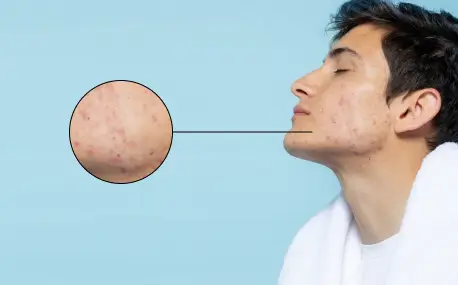
Pigmentation refers to the coloring of your skin. It’s determined by melanin, a pigment produced by specialized cells called melanocytes. Uneven melanin production can lead to pigmentation issues, causing darker patches or lighter spots on your skin.
Here’s a breakdown of pigmentation, common causes, and treatment options:
What is Pigmentation?
Melanin production is influenced by several factors, including genetics, sun exposure, and hormones. When melanin production is uneven, it can manifest as:
- Hyperpigmentation: This is where the skin appears darker than usual, often in patches. Examples include age spots, sunspots, and melasma.
- Hypopigmentation: This is where the skin appears lighter than usual. Examples include vitiligo and post-inflammatory hypopigmentation (PIH), which can occur after acne or injury.
Common Causes of Pigmentation:
- Sun Damage: Ultraviolet (UV) rays from the sun stimulate melanin production, leading to hyperpigmentation. Age spots and sunspots are classic examples.
- Melasma: This is a type of hyperpigmentation that often appears on the face during pregnancy or due to hormonal fluctuations.
- Post-inflammatory Hyperpigmentation (PIH): This can occur after inflammation caused by acne, eczema, or injuries.
Treatment Options for Pigmentation:
There’s no one-size-fits-all solution for pigmentation concerns. The best approach depends on the severity, type of pigmentation, and your skin type. Here are some common treatment options:
- Topical Creams: These creams often contain ingredients like hydroquinone, kojic acid, or azelaic acid that lighten dark spots by inhibiting melanin production.
- Chemical Peels: Chemical peels use controlled application of acids to exfoliate the top layer of skin and promote even melanin distribution.
- Laser Treatments: Lasers can target specific pigment concerns and offer more targeted treatment compared to chemical peels.
Lifestyle Modifications:
In addition to these treatments, incorporating certain practices into your routine can help prevent further pigmentation and enhance treatment results:
- Sun Protection: Daily use of sunscreen (SPF 30 or higher) with broad-spectrum UVA/UVB protection is crucial to prevent sun damage, a major trigger for pigmentation.
- Skincare Routine: Using a gentle cleanser, moisturizer, and products with antioxidants like vitamin C can help support healthy skin and even skin tone.
Consulting a Dermatologist:
If you’re concerned about pigmentation, it’s best to consult a dermatologist. They can diagnose the specific type of pigmentation you have and recommend the most suitable treatment plan for optimal results. Remember, consistency is key! Following a treatment plan diligently and maintaining good sun protection habits will help you achieve a clearer, more even complexion.






